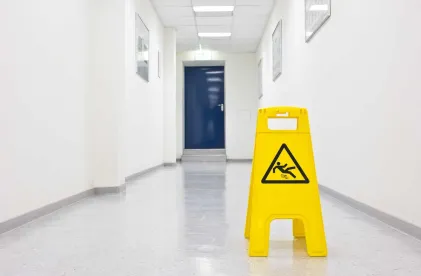It is estimated that over 92,000 personal injury attorneys practice in the United States. This represents 5-7% of all lawyers in the country. With all those PI attorneys around, there should be some common things all personal injury lawyers look for in a case – and a client.
In this article, we describe how a personal injury attorney thinks about the law, the practice, and any particular case. With this information, laypersons may be better able to communicate with lawyers and get positive results. At the very least, clients will understand what issues are common to personal injury lawyers and how those issues might relate to their situations.
1. Their Role in Personal Injury Law
Society recognizes there is a need to protect people from losses that occur when a person or persons are injured through no fault of their own. Society enacts laws which attempt to compensate injured victims if their losses are due to the negligence of others. Negligence is defined as a failure to take proper care in doing something. In other words, a party owes a duty of care to another, that duty was breached through action or inaction, and that breach resulted in damages to the injured party.
Because negligence is not intentional, the risk is always present. To mitigate this risk, insurers offer coverage for accidents such as car wrecks, slip and falls, injured invitees, etc. When a loss occurs, the victim makes a claim against the at fault party who then asks the insurer to pay the claim. The insurer then hires attorneys to make sure the claim is proper. Victims’ attorneys (personal injury attorneys) are hired to make sure the insurer pays the appropriate compensation.
Plaintiff attorneys sees themselves as cogs in the wheels of justice. They exist in this arena to help injured parties become whole again through monetary compensation. Their job is to secure just compensation for their clients.
Personal injury attorneys do NOT however generally believe in something for nothing. That is, they rarely would pursue a claim for injury if there were not a valid claim in the first place. Barring a publicity stunt or something similar, attorneys rarely engage in work that will not likely yield commensurate revenue. This leads us to #2.
#2. Personal Injury Practices are Businesses
Personal injury is a business and attorneys are compensated for their time and efforts in pursuing justice on a client’s behalf. Like any other business, attorneys seek to make a profit from their efforts and expenditures.
To provide services to the public, attorneys must outlay a variety of expenditures. These routinely include:
-
Office Space
-
Support Staff (receptionists, secretaries, paralegals, investigators)
-
Expert Fees (doctor’s narrative reports, deposition and trial testimony, consultation)
-
Document Fees (medical records, copies, transcripts, etc.)
-
Utilities (phone, electric, internet)
-
Library (Lexis, Westlaw, physical books and updates)
-
Continuing Legal Education and Seminars (trial techniques, mandatory State Bar Requirements)
-
Travel (gas, parking, lodging, meals)
-
Marketing (Website, print ads, billboards, social media, etc.)
-
Association Dues (State and Local Bar Associations)
-
Licensing Fees (State licensing fees, Client Fund contributions, etc.)
-
And more
These costs must be recouped, and additional money must be collected to compensate for salaries and time spent doing the actual legal work. With this in mind, it is easy to see how hard lawyers must work to make ends meet.
Considering personal injury attorneys get paid only if they are successful, it is equally clear they must be extremely selective in the cases they choose to work on. Each personal injury case is unique. However, similar tasks must be done for each case regardless of the injuries. Since it takes a similar amount of time and expense to pursue a relatively minor injury case as it does with one with catastrophic injuries, it is not surprising attorneys are always on the lookout for higher value cases.
Understanding the personal injury law game is understanding what types of things your lawyer must focus on to stay in business and turn a profit.
Consider for example, a slip and fall on ice case in which you injure your lower back. You had scans done but they show no permanent damage to your spine. Your case is considered a “soft-tissue” and will likely settle for less than $35,000 depending on the liability and amount of medical treatment.
To complete your case, your attorney must compile and review medical records, draft a demand for settlement and submit to the carrier, make and field multiple calls to experts and opposing counsel and advise you how to proceed. If the case settles for $35,000, he will earn approximately $12,000 as a fee in this example.
Contrast this with the client who is injured when a semi-truck slammed into the side of his Tesla. The client gets air lifted to the hospital, spends several days there recovering from multiple surgeries, and spends the next 12 months in rehabilitation centers trying to get his body back to functioning. The lawyer must still do all the same things as with the slip and fall case. Yet, with the car accident case, the ultimate recovery will likely be over a million dollars. That would give his firm a fee more than 20x larger than the slip and fall for similar work and cost.
Would you be surprised if the attorney would give more attention to the larger case? Which case would you focus on if you were the attorney?
#3. To Lawyers, It’s Not Personal
Attorneys are hired to get involved in their clients’ problems. However, they do not personalize these situations. This is because attorneys have their own problems to deal with. If attorneys “take home” the conflicts of their clients, they would be coping with problems 24 hours a day, 7 days a week. Certainly, no one would want this type of life.
Instead, good attorneys compartmentalize their clients’ situations and see them as the temporary problems they are – ones with a possible acceptable solution. Lawyers specialize when they handle the same types of legal situations over and over again. Although specific facts add variety to the process, the outcome sought is similar. So are the steps to achieve this outcome.
When you are trying to understand how or why your attorney is recommending a certain course of action, try to see the issue through the eyes of someone who has seen the same or similar situation be resolved multiple times over the years.
Although your case is unique, it is likely the first time you’ve dealt with that particular situation. However, your lawyer has dealt with similar situations – many times over. After all, that’s why you hire a lawyer in the first place!
What you might think is an important fact or issue, may not be when viewed through your attorney’s experience. Remember, personal injury attorneys are paid if the case is successful. It is in your lawyer’s own interest to get you the best outcome. Your lawyer is not dismissing your concerns, he/she simply doesn’t see them as important as you do. Perhaps, the reason is that the issue is personal to you and not to them.
#4. Case Value is Subjective
What is my case worth? This is a question many personal injury attorneys must field. It’s an honest question. All of us want to know the future in advance. And clients want to prepare themselves for that future.
But the future is unknowable and in response, clients will likely hear some canned phrase like: “the case is worth what a jury is willing to award” or “the case is worth what you are willing to accept in settlement”. These may be accurate statements but are not helpful in any meaningful way for the client.
Unfortunately, there is no way to answer the question accurately and satisfy the questioner at the same time. Knowing this, attorneys always tip toe past the discussion since putting a figure in the mind of a client is a sure-fire way to make a client dissatisfied. And dissatisfied clients rarely recommend their attorneys to others.
The truth is your attorney doesn’t know what your case is worth either. He/she will simply do their job as best they can, make a demand, and see what offer the insurer presents. If the offer is bad, your lawyer will likely try to negotiate a better deal. If the offer is good, the attorney will still try to get more. Only after the last nickel is squeezed out of the insurer’s settlement authority, will you and your attorney know what they are willing to pay.
At that point, your lawyer will either recommend settlement or you may decide to go to trial. Ultimately, the client decides.
#5. Settlement is in Everyone’s Best Interest
Even after the best settlement offer is given, plaintiffs are often disappointed. Contributing to this might be the reading of multi-million-dollar ankle sprain verdicts found online. The truth is – most cases are settled for less than what a jury might give. But there is good news. The good news is that settlement is in everyone’s best interests.
Going to a jury might seem like fun, but your attorney likely doesn’t see it that way. Most personal injury attorneys will not recommend going to trial unless they are very confident they will prevail and recover amounts far exceeding the current settlement offer.
A trial costs an attorney time but it also costs money. Most trials require testimony from expert witnesses. Those experts want to be paid for appearances. Each appearance costs several thousand dollars. In professional malpractice cases such as medical or legal malpractice, expert fees can reach hundreds of thousands of dollars.
Even if a trial results in a verdict for plaintiff, the attorney is faced with even more work and expense. Trial transcripts must be ordered and paid for. Experts may need to be consulted again which adds to cost. Finally, the attorney must engage in post-trial motion practice and the appellate process which consists of a great deal of time going over trial transcripts, writing and replying to appellate briefs, and additional appearances in court.
With a settlement, the amounts are known. Everyone is a little disappointed, but the case is still resolved. The insurance company gets to close the file and account for the loss. The plaintiff attorney recoups the costs to litigate and generates a fee for the firm. And the plaintiff gets to move on with life, a little wiser, but also hopefully compensated for their injury.
Attorneys think along these lines when it comes to settlement.
Conclusion
With this post, we tried to give a little insight into how a personal injury attorney might think about the practice of law and any particular case. Understanding first that a legal practice is a business can help clients understand how and why a lawyer would recommend a particular action or strategy. It’s all about the business, and business drives the profession. We hope this helps.
This submission does not necessarily reflect the opinion of the National Law Review or National Law Forum. LLC or provide legal advice.




 />i
/>i

